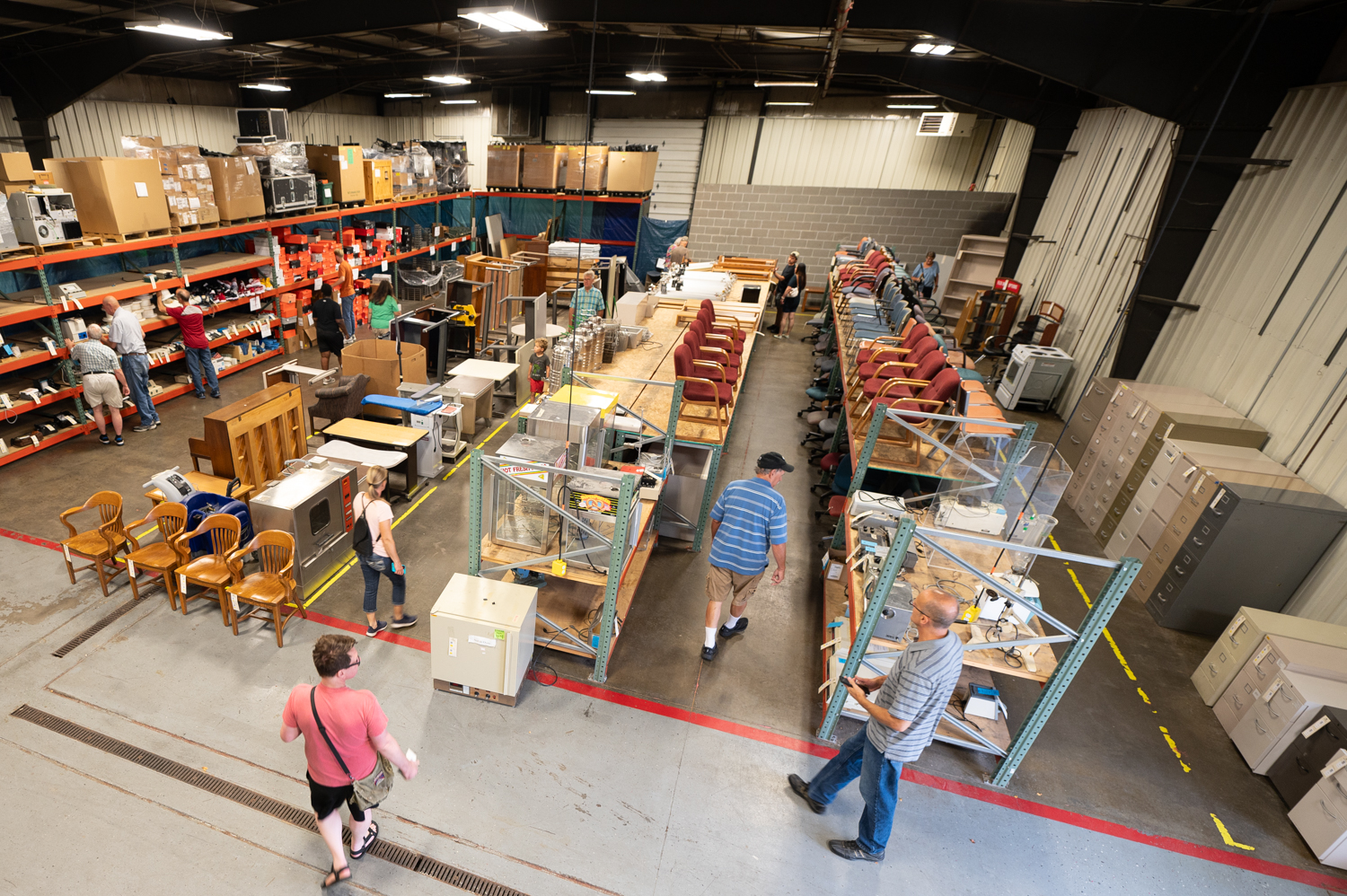Iowa State University offers a number of reuse opportunities to students, faculty and staff for items they would otherwise consider waste and contribute to the landfill.
Through the university's ongoing ISU Surplus Program, furniture, equipment and a diversity of supplies related to campus offices and operations that are deemed unneeded by one department and/or unit can be utilized by another department and/or unit rather than thrown away. This results in the return of more than $250,000 of reusable assets into university operations on an annual basis. In addition to being utilized for campus operations, surplus items are also offered for sale to university employees and students, as well as community members and businesses during weekly public sales.
Multiple events during the academic year offer unique and impactful opportunities for reuse. The Move Out Donation Program is the Department of Residence's annual spring move-out collection event in which any reusable item (clothes, furniture, electronics, food, cleaning supplies, etc.) is collected for redistribution to community shelters, food banks and non-profit organizations. In the last few years of offering this opportunity, many bags of food and pounds of clothing have been collected and put to reuse. Additional events, including a t-shirt collection, community clothing, book and FreeCycle swaps, textbook collection and ISU Dining's donation of "day-old" items from five of its campus cafes to community programs and organizations, add additional waste diversion, as well as benefit to communities in need.
See the dropdowns below to see how reusing is making an impact within each of the three facets of sustainability.

